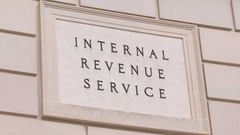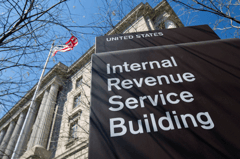With daycare centers closed and summer camps turning kids away, employees who socked away money in their Dependent Care Flexible Savings Accounts (DCFSAs) are worried their use-it-or-lose-it account balances are going down the drain.
This concern is also shared by those who tucked away pre-tax savings in Health Care Flexible Savings Accounts (HCFSAs) to cover eligible health care expenditures. With hospitals postponing elective procedures and patients skittish about entering health care facilities, savers simply aren't racking up enough receipts to deplete their FSA balances.
Both groups can now breathe a sigh of relief, since new guidance from the IRS will allow most employees to make midyear pre-tax contribution adjustments to their Health Care and Dependent Care FSAs, which typically aren't permitted once enrollment elections are set.
Historically, the only exception to this rule was if an employee experienced a Qualifying Life Event (QLE), defined by the IRS as a marriage, divorce, job change, birth or adoption of a child, or when a dependent child reaches age 26.
In addition to allowing midyear savings account adjustments, the IRS is also permitting midyear health plan enrollment changes.
MIDYEAR CHANGES TO MEDICAL PLANS WILL ALSO BE ALLOWED
These changes to pre-tax savings accounts come by way of IRS Notice 2020-29, which also allows for midyear changes to enrollment in employer-sponsored group health plans. Employees who initially declined enrollment will be able to enroll, while those currently enrolled will be able to drop existing coverage and change plans and even enrollment tiers.
While it's optional for employers to allow their employees to make these newly permitted midyear changes, it's expected that most employers will allow these changes to happen, given the unique and unprecedented circumstances in which we find ourselves.
It's too early to tell just how these midyear changes might impact an employer's financial burden. While employees who drop a dental or vision plan (because they don't think they can use it) could reduce an employer's cost, there may be changes to healthcare plan enrollments that increase an employer's premium and claim expense.

At a time when some people may be cash-strapped, this newfound flexibility should be welcome news. Suspending contributions to a Flexible Spending Account and/or dropping under-utilized coverages will help struggling employees manage expenses. For those who felt over- or under-insured, this allowance for midyear changes provides a unique opportunity for them to secure financial peace-of-mind.
ANNUAL CONTRIBUTION LIMITS NOT IMPACTED
This new ruling by the IRS does not impact contribution limits to FSAs. For 2020, participants are still capped at $2,750 in contributions to Health Care FSAs. This includes Limited Purpose FSAs, which are restricted to dental and vision services and are designed to be used in tandem with those enrolled in Qualified HDHP plans with Health Savings Accounts.
The Dependent Care FSA contribution also remains fixed at $5,000 a year for individuals (or married couples filing jointly), or $2,500 for a married person filing separately.
ANOTHER IRS NOTICE INCREASES ROLL-OVER AMOUNTS
IRS Notice 2020-33, also released May 12, increases the amount that Health Care FSA participants can carryover at the end of the year. While this is only applicable to employees enrolled in plans that allow for a carryover option, the maximum rollover amount has been raised to $550, up $50 from the previous limit of $500. (This carryover limit will now be indexed for inflation at 20 percent of the allowable payroll-deductible contribution limit, which is $2,750 for plan year 2020.)
While any rollover adjustment is welcome news, considering these unprecedented times, many are advocating for much larger carryover amounts, longer timeframes for claims, or completely eliminating the use-it-or-lose-it rule
LONGER FSA CARRYOVERS PRESENT HSA PARTICIPATION ISSUES
Just one word a caution about FSA carryover - for plan years ending before Dec. 31, 2020, employers can amend a Health Care or Dependent Care FSA plan to permit participants to "spend down" any remaining amounts from 2019 that would otherwise be forfeited, through the end of 2020. This means that employers can allow claims incurred at any time in 2020 to be applied to any remaining 2019 FSA balances.
This extension could complicate matters for employees who contributed to a 2019 Health Care FSA and enrolled in an HSA in 2020: An employee who carries over unused funds from a prior year to a current year under a standard Heath Care FSA will not be eligible to make HSA contributions for the entire current plan year.
Employers should consider this impact on HSAs as they decide whether to extend the claims period for Health Care FSA. Employers can avoid this issue by allowing 2019 rollover Health Care FSA funds to be transferred to an HSA-compatible, Limited Purpose FSA, which can be used only for vision care and dental expenses.
SOME MIDYEAR CHANGES ARE ALWAYS ALLOWED
Finally, it should be noted that some midyear elective-contribution changes have long been permitted. For example, because they aren't use-it-or-lose-it, changes are always allowed to HSA contributions. The same goes for commuter benefits, as well as payroll deferrals to 401(k)s and other defined-contribution retirement plans. That said, some employers may limit changes to once a month to ease the administrative burden.
FOR MORE INFORMATION
For more information about IRS Notices 2020-29 and 2020-31, click here to download our latest compliance bulletin.
For your convenience, we've assembled two comprehensive COVID-19 Download Resource Centers designed to help employers deal with this pandemic and the challenges facing all of us as we reopen for business.



















